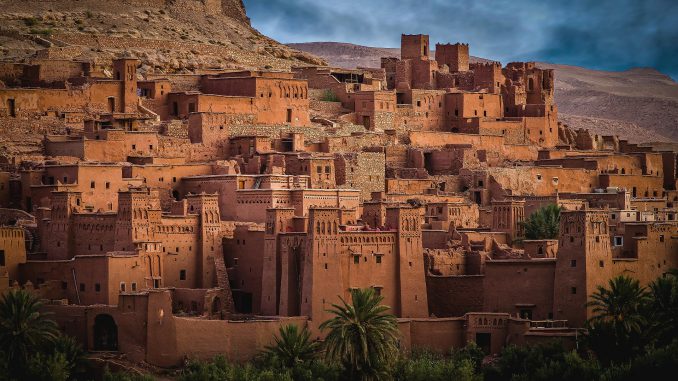
Morocco reopened its borders for international travel from 7 February, after a few months of closure amid the spread of the latest Covid-19 strain, Omicron. The decision to lift travel restrictions has been greeted with great satisfaction by Moroccan and foreign operators, including airlines impacted by the border closure.
Adel El Fakir, director general of the Moroccan National Tourist Office (ONMT), has organized, last week, a series of meetings with tourism professionals and airlines in France within the framework of the efforts to revive the tourist sector. The head of the ONMT has also held, last Thursday, a meeting with the tourist operators of the city of London.
Within the framework of a commercial and promotional communication tour, which started a week ago on three main markets of Morocco (France, United Kingdom and Spain), the ONMT has organized similar meetings with Spanish professionals in order to promote its vision of the revival of tourism in Morocco.
The reopening of the national airspace coincided with the end of the tour of Adel El Fakir and his teams who went to Madrid to “finalize the recovery with the main Spanish travel prescribers”, the Office said in a press release.
In this context, El Fakir stressed that it is essential for the ONMT to be present in Spain with its partners “to activate a recovery which is eagerly awaited on both sides of the Mediterranean”. A statement shared by Hamid Bentahar, president of the National Confederation of Tourism, who calls for the development of sustainable tourism, by putting in place “resilient and inclusive tourist offers in the different regions of the Kingdom”.
This visit follows the remarkable presence of the ONMT at the 42nd edition of the International Tourism Fair of Madrid. It also comes after the deployment of a new Task Force in the Spanish capital demonstrating the importance of this market in the strategy of relaunching Morocco as a destination.
Before the pandemic, total spending by Spanish tourists within Morocco amounted to 4.1 billion dirhams, while the average spending per night per Spanish tourist reached 494 dirhams. At present,
Moroccan tourism is called upon to adapt to the new post-Covid-19 realities, and to keep a vigilant eye on the promoting markets.
Closures: an obstacle to travel or another reason?
The DG of the Office has held a meeting with the management of the national airline Iberia. It is therefore planned to strengthen the strategic partnership between the ONMT and Iberia from the summer season of 2022. It is planned to strengthen the promotion of Morocco throughout the Iberia network, which includes more than 100 European and South American destinations, which will lead to a strong increase in connections to the cities of Casablanca, Marrakech and Tangiers.
Iberia has announced a 100% takeover of its Madrid-Tangier route, with 7 weekly frequencies, and a 76% takeover of the Madrid-Marrakech route, with 9 frequencies per week. This is only a first step, given the very strong potential of this route due to its role as an interconnection with routes from the Americas and other European countries, whose nationals already represented 35% of the passengers to Marrakech during the 2021 summer season.
While the communication campaign to promote Morocco as a global destination promises a health protocol that will preserve the gains made in the fight against the pandemic, the hardly predictable evolution of the epidemic situation remains a concern for potential travellers. Since the closure of national borders due to the resurgence of the Covid-19 pandemic, thousands of passengers have been stranded, the majority of whom are tourists.
While the pandemic and the uncertainty it creates remain a barrier for many tourists, the near universal availability of the vaccine and the reopening of many borders may mean that these tourists will gradually return to travel after two years of successive closures and lack of recreational activities.
In any case, the year 2021 has been marked by the resumption of air traffic and has raised the hopes of the airlines. “
The desire to travel has never been as strong as it is now,” says Bentahar, noting that “Morocco’s loyal partners, notably the airlines, are making every effort to ensure a successful relaunch.
Discussions with operators will thus include consideration of measures to improve traveller confidence, understanding and addressing new market trends and demand drivers, and a commitment to building more resilient and inclusive
tourism sectors.
Tourism marketing at the heart of the recovery plan
Digital marketing has expanded business development for several companies in different sectors, including the tourism industry, which has shown itself to be digitally savvy, especially during the pandemic. Aware of the need to rely on digital to stay on the radar of global operators, El Fakir also met with the European management of Expedia, a global giant in online travel distribution.
The objective is to quickly ensure a dynamic recovery of online sales of travel to Morocco and to put in place a joint communication offer as well as a commercial offer of approximately 440,000 nights for the summer of 2022 to Morocco, i.e. a recovery of 80% of the objectives previously achieved (summer 2019).
Within the framework of this digital marketing scheme, the day’s work programme also included a meeting with the Logitravel/El Corte Inglés
group, an important online tour operator which ranks 3rd in the category of online tour operators in Spain and 1st in Portugal. “The promotion of the Moroccan destination in marketing via digitalization will undoubtedly accelerate the pace of the sector’s recovery,” says Hamid Bentahar.
Through this tour, the ONMT is doing
its utmost to prepare the recovery of tourism which has been underway for several months, and is sending a strong message of confidence to its European commercial partners as well as to public opinion.

Be the first to comment